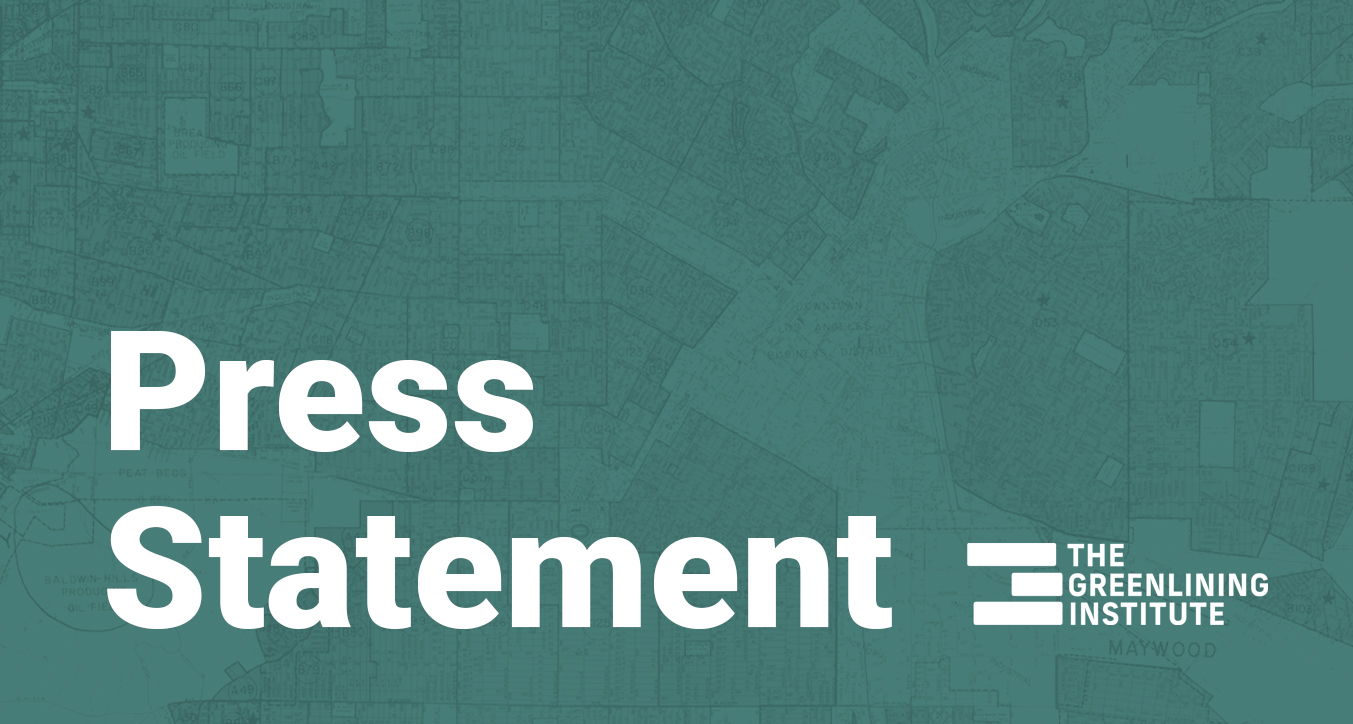Racial Justice on CA Ballot Brings Victories, Uncertainty

Media Contact
Danielle Bell
SENIOR PROGRAM MANAGER FOR MEDIA RELATIONS
media@greenlining.org danielle.bell@greenlining.orgContact: Bruce Mirken, Greenlining Institute Media Relations Director, 415-846-7758 (cell)
OAKLAND, CALIFORNIA – While still waiting for clarity on the presidential election, Californians voted on a variety of issues with racial equity implications and produced a mix of encouraging results and disappointments, with several races still in doubt, The Greenlining Institute said today.
In a huge win for criminal justice reform, Voters approved Prop. 17, which will allow persons convicted of felonies who are on parole to vote in California elections, and rejected Prop. 20, which would have rolled back recent, successful reforms. As the racial inequity of the criminal justice system has finally become more apparent, Californians faced a choice between advancing reform or returning to failed policies of mass incarceration, Greenlining Institute President and CEO Debra Gore-Mann noted.
“Our old felony disenfranchisement law was a remnant of the 150-year old effort to keep Black and Brown citizens out of the voting booth, and kept citizens from having a voice in this democracy,” Gore-Mann said. “We’re heartened that voters got rid of this repugnant holdover from state and local laws that enforced racial segregation, and that California took a decisive step towards rejecting a return to the disastrous days of mass incarceration. Black and Brown communities, and indeed all of California, will be safer because of these votes.”
Other results were mixed, and in some cases still uncertain. Proposition 16, a key priority for racial and gender justice advocates, continues to trail although the outcome has not been called. “Whatever the final outcome, California needs to restore affirmative action and rebuild our efforts against systemic racism and sexism,” Gore-Mann said. “We are working hard to create a more just society that spends its public dollars to create equal opportunity for women and people of color. You can’t solve problems rooted in race and gender by ignoring race and gender, which is what the law now requires. However this finally turns out, you can count on Greenlining to fight the good fight.”
Greenlining was also disappointed by the passage of Proposition 22. While Prop. 22 wasn’t always characterized as a racial justice issue, Greenlining noted that over three quarters of ride-hailing drivers are people of color.
“We’re disappointed that voters were persuaded by the massively financed and devious campaign by wealthy companies designed to permanently keep their most essential workers in a status comparable to sharecroppers,” Gore-Mann said. “This terrible new law continues to allow corporations to relegate their workers into categories that service their financial bottom lines. We must continue fighting to protect our gig workers to be sure they are not exploited, and we will continue to work in solidarity with this workforce.”
As of Wednesday morning, Proposition 15 remained too close to call. “Despite a grossly dishonest campaign against Prop. 15, millions of Californians made clear they want to fix an unfair corporate tax break and provide critically needed funding for schools and other priorities vital to California’s communities of color,” said Gore-Mann. “We’re still hopeful for passage, but whatever the result we won’t give up working to shift the burden from low income working families to wealthy corporations so that they pay fair share to support vital public services.”
To learn more about The Greenlining Institute, visit www.staging3.greenlining.org.


